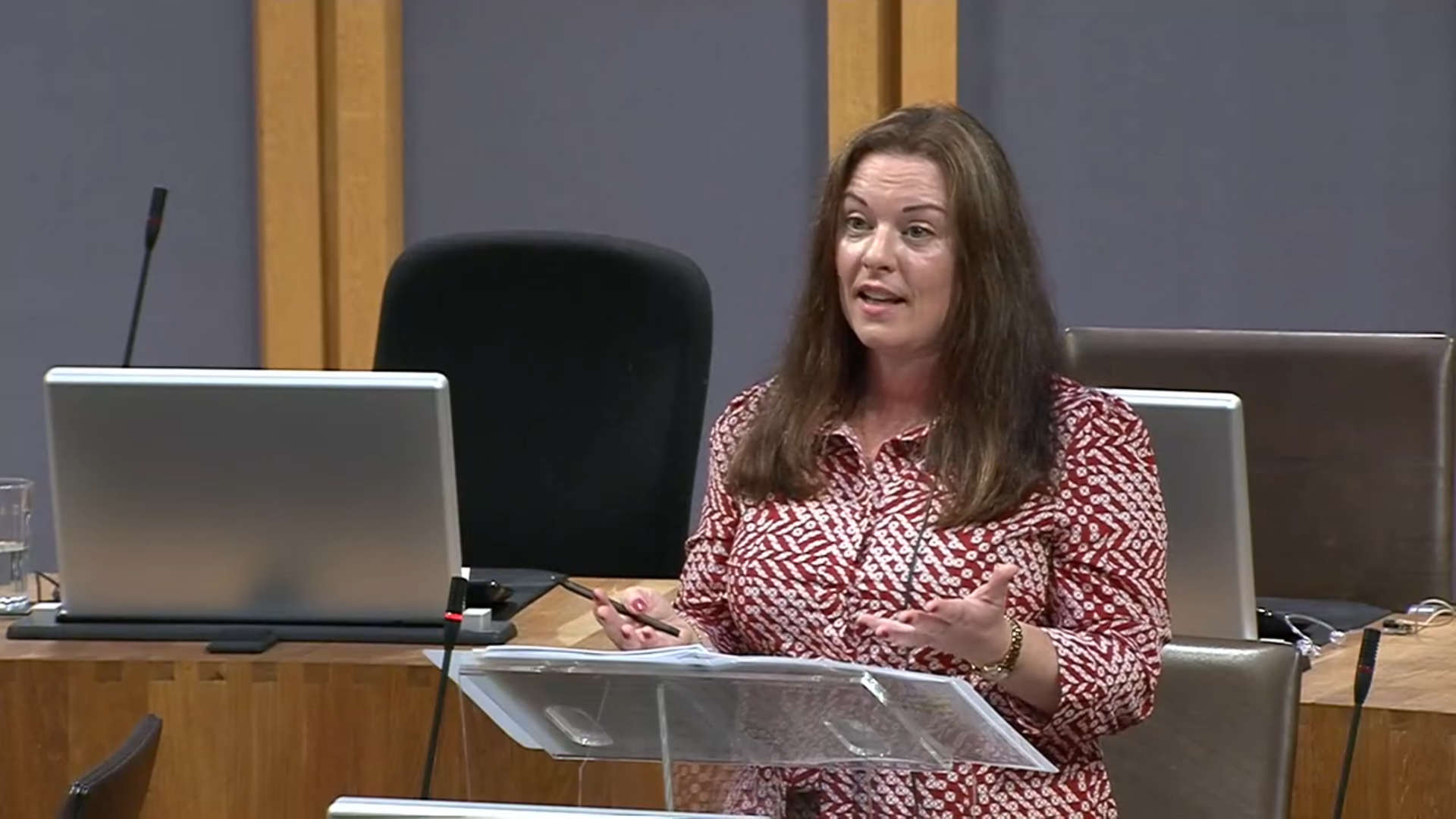
Wales' new post-16 education minister revealed plans for an emergency fund for universities amid concerns about an estimated £100 million shortfall.
Vikki Howells was quizzed in the Senedd about reports of a rescue plan for universities in England, including a £1bn bail-out and fee rises as well as cuts to courses and staff.
Pressed about the Welsh Government's own plans, she said: "I'm aware that the UK Government has this emergency fund that they're bringing into play."
"Medr is going to have its own funds to support our institutions here in Wales."
Medr, a new body which was established in August, now oversees all post-16 education and research – including colleges and sixth forms unlike its predecessor, Hefcw.
Ms Howells stressed the emergency funding, which she did not put a number on, would seek to transform the sector as well as bail out universities in financial peril.
'Clock is ticking'
She told the Senedd: "Although we know this is a difficult time, and the sector needs to find ways to reduce costs, we don't believe there is any Welsh institution that is at risk of failure."
Cefin Campbell, Plaid Cymru's shadow education secretary, was not so sure as he warned of a funding crisis facing Welsh universities.
He said: "I believe if the [Welsh] Government doesn't take urgent action, we could lose these very special institutions – a number of them."
Mr Campbell added: "Considering the financial hole that faces many of our Welsh universities, thought to be £100m, the pressure is growing on you as a government to work with our universities to find solutions that will protect jobs, students and our wider economy."
Calling for clarity on the Welsh Government's position, the former lecturer warned: "Let's not beat around the bush – Welsh universities face serious challenges and the clock is ticking."
'Worrying'
Ms Howell, a former assistant head of sixth form at Caerphilly's St Cenydd Comprehensive, said the pressures are not unique to Wales "but across the UK and even internationally".
She pointed out that Welsh Government funding makes up about 10% of the total, saying many of the factors fuelling financial pressures on universities are outside ministers' control.
Ms Howells emphasised that universities are autonomous, "so they will be taking their own decisions, albeit with an input and a steer from myself and from Medr".
Tom Giffard, the Conservatives' shadow education secretary, warned the number of people going to university has fallen to a 15-year low.
Mr Giffard shined a light on "stark" statistics showing 33% of 18-year-olds in Wales applied to university this year, compared with 41.9% for the UK as a whole.
'Three Cs'
He warned of a 1% drop in the number of people pursuing apprenticeships, saying it is worrying to see fewer and fewer people choosing both routes.
Mr Giffard, a former teaching assistant in a Welsh-language primary school, raised concerns about Medr's priorities being too broad, a lack of targets, and unfilled posts.
Ms Howells, who was appointed last month, pointed to non-repayable grants for students from the poorest households but she accepted that participation needs to improve.
In a statement to the Senedd on Tuesday, the minister outlined her priorities for post-16 education including a focus on three Cs: collaboration, cooperation and community.
Urging people to respond to a consultation on Medr's strategic plan, she described the new arm's-length body as a major step towards a vision of a more coherent post-16 sector.
'Fourth C'
John Griffiths, a Labour backbencher who represents Newport East, raised ColegauCymru's calls for a national vocational education and training strategy.
Plaid Cymru's Heledd Fychan warned of declining numbers of pupils in sixth forms in the past few years, with no sixth-form provision at all in any school in some counties.
Labour's Mike Hedges, who was a lecturer in Pontypridd for 27 years, welcomed the minister's appointment and "more importantly" the creation of the position itself.
Rhys ab Owen, an independent, cautioned that a fourth C, Cymraeg, was missing from the minister's statement as he raised concerns that 99% of college training is in English.
Adam Price, the former MP and Plaid Cymru leader, criticised a decision to close a Coleg Sir Gâr campus, bringing an end to nearly 100 years of further education in Ammanford.
Following the exchanges, Ms Howells sent a letter to the Llywydd, Elin Jones, clarifying her remarks about emergency funding.
She said: "During my response to the question, I made reference to a specific 'transformation fund'."
"I would like to clarify that the policy in this area remains at a very exploratory stage, and we are still working through what, if any, potential support mechanism may look like, in partnership with Medr and institutions."







 'Renew Bangor': two High Street businesses evicted
'Renew Bangor': two High Street businesses evicted
 Aber Tai’r Meibion 'more resilient' two years on
Aber Tai’r Meibion 'more resilient' two years on
 Holyhead man jailed for assaulting police officers
Holyhead man jailed for assaulting police officers
 Two callouts for Beaumaris lifeboat
Two callouts for Beaumaris lifeboat
 New living seawall at Amlwch Port
New living seawall at Amlwch Port

